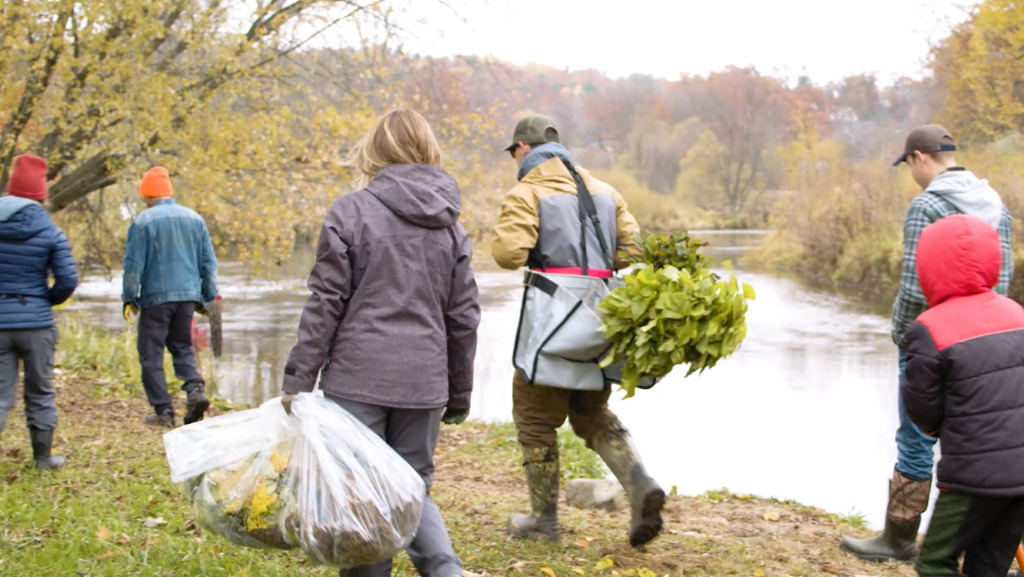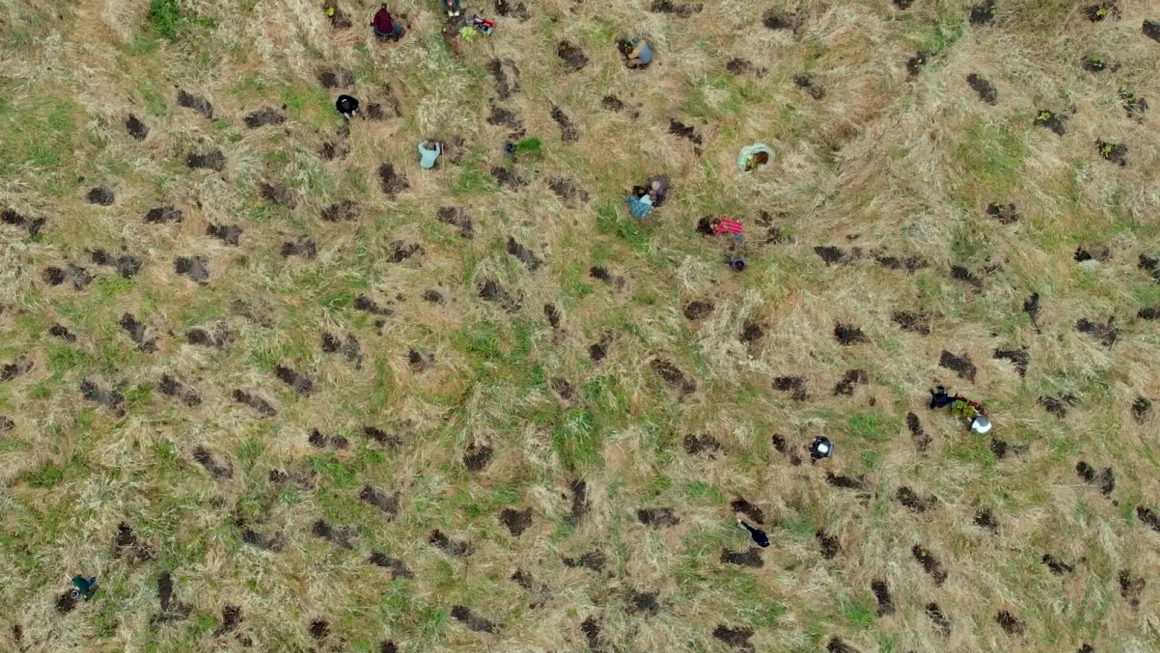(NOTE: This article was authored by Jamie Vaughn and first appeared on TU.org. Jamie is Trout Unlimited’s Rogue River Home Rivers Initiative Coordinator. She is based in Michigan.)
Trout Unlimited’s Rogue River Tree Army planted 17,067 trees along rivers and streams throughout the Rogue River watershed over the last two years. Its “soldiers” are just getting started.
The Tree Army, which is funded by the Great Lakes Restoration Initiative through the U.S. Forest Service, is made up of TU staff, seasonal work crews and volunteers. This year, the Rogue River Tree Army is setting their sights beyond the Rogue River watershed to take the initiative to more coldwater rivers and streams across western Michigan.
Thanks to a new grant from the Forest Service, TU is partnering with the Land Conservancy of West Michigan to enhance the resilience of western Michigan forests by planting 31,000 trees and shrubs at 13 riparian and shoreline sites in the Lower Grand, Pere Marquette, White, and Muskegon watersheds and along Lake Michigan resulting in 87 acres of forest restored.
By selecting high priority sites and utilizing climate adaptation strategies, this project will fortify habitats on lands that are high quality, protected and connected, maximizing impact for water quality, wildlife and public benefit.
TU and the Land Conservancy of West Michigan will restore critical areas through reforestation and underplanting on select nature preserves and conservation easements in cooperation with private forest landowners.
TU incorporated strategic priorities of federal, state and local partners to determine 13 project sites on lands that are legally protected for their high conservation value and significant public benefit.

These lands host large connected and high-quality habitats, are adjacent to National Forest, state or locally protected lands, are in above average resilient landscapes as mapped by The Nature Conservancy, buffer high quality waters, natural river systems and critical dunes, and support priorities in relevant plans.
Trout and other coldwater species depend on shade, filtration, instream wood and nutrient inputs that healthy riparian forests provide. Climate change threatens the hydrology of these important waterways and will increase stressors on trees within the riparian zone. Connected and intact resilient riparian forests will become even more important in keeping these waterways healthy in the future.
This large-scale tree planting initiative was conceived by TU in 2017 and inspired by President Franklin D. Roosevelt’s Civilian Conservation Corps, a workforce of over 3 million young men who planted more than 3 billion trees during the Great Depression to repair our lands from the damage of poor farming and forestry practices.
TU is excited about what the Tree Army has achieved in just two years and is looking forward to expanding on its success thanks to critical support from amazing volunteers, dedicated community partners and the Forest Service.



Leave a Reply